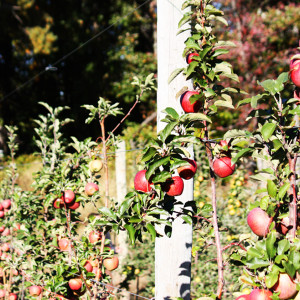Q&A: Wen Stephenson Talks Climate Justice, Radicals, and Race

Photo Provided
Well into his new book about the fight for climate justice, author Wen Stephenson shares a short but riveting tale of Cold War protest and atomic fear. It’s the story of a ship named The Golden Rule, which was captained by a Quaker named Albert Bigelow. Bigelow and a small crew tried to sail the vessel into a swath of the South Pacific where the U.S. was testing its WMDs in hopes of halting what Bigelow called “the monstrous delinquency of our government in continuing actions which threaten the well-being of all men…”
Stephenson’s quick mention of The Golden Rule is multipurpose, illustrating the spiritual underpinnings of what it means to bear witness and providing greater historical context to today’s climate-oriented activism, which he profiles throughout the pages of What We’re Fighting for Now Is Each Other. When he transitions from The Golden Rule back to threats now posed by climate change, he reveals a glimmer of the doomsday urgency that helped turn him from a Boston journalist to a full-blown activist and writer, a “wrenching” decision that he brooded over for many months.
“Today, the climate crisis has long since passed the point of prevention,” he writes. “Climate catastrophe, on some scale, is winging toward us: the missiles have left the silos, the bombs have left the bays. Cities, indeed entire countries, will be lost. Millions will needlessly suffer and die—just how many millions depends on how much more carbon is extracted and burned.”
This is one of the few spots in the book where Stephenson blatantly beats readers over the head with the fact that we’ve crossed environmental thresholds that can’t be uncrossed. The subject is dire, but Stephenson does not dwell. Instead, he delivers a masterful survey of the big brains, audacious personalities, and unwavering willpower of the contemporary climate-justice movement.
Stephenson, who is donating all proceeds from sales of the book to grassroots groups, speaks on Wednesday evening at the Cambridge Forum. We caught up with him beforehand for a quick chat.
Jay O’Hara, who used a lobster boat to block a freighter from delivering 40,000 tons of coal to the power station in Somerset, tells you, “We do have to put our skin in the game.” There are many people who know and fear and respect the science of climate change, but can’t or won’t put their skin the game. What is the process of reaching that point, from your vantage?
Well, first there has to be that realization, that decision, to get one’s skin in the game. And there are many ways to do that, and I don’t presume here to be charting the one sure path forward on all of this.
I think the most important thing, though, is for people to realize that at this point, at this late hour, this late date in the climate crisis, it’s going to require some pretty serious commitment if you want to try to change the game. First and foremost it’s about political engagement. In order to really change the situation, it requires political engagement.
So if you’re someone who can’t just uproot and change your life, you can at least get involved on a political level. You can at least engage with those in your community, in your region, in your state, who are trying to build a grassroots movement, who are really trying to apply grassroots pressure. It’s about organizing.
You weave your personal process of getting involved around profiles of some truly radical activists—a young woman who straddles two tree tops to protect them from developers, for example. Was it tough to depict the huge spectrum of people involved in the fight for climate-justice?
The book is deeply personal, it’s written from my own experience, it’s got my own journey; it is not primarily about me, obviously, but the narrative arch of that personal story is really about the radicalization of a privileged, white, mainstream, center-left liberal.
And that is what has to happen on a much broader scale—this radicalization of the mainstream. But that’s not going to happen until people really come to terms with the truly radical nature of our situation and the kind of response it requires.
Radicals force the issue. Whether it was on slavery, on women’s rights, labor rights, civil rights, or gay rights, radical movements forced those issues into the mainstream consciousness and brought about true moral reckoning. And so now we’re facing, really, the greatest human rights struggle of our time, which is the struggle for climate justice, and that same kind of awakening, that same kind of radicalization, needs to happen.
You talk pretty honestly about the tension in the climate-justice movement, some of which stems from activists who drop in on communities and don’t always mesh with the residents who actually bear the burden of pollution or rising sea levels or whatever. Is this tension good or bad?
I’ll have to say it’s a good thing. It’s been healthy—there’s creative tension, there’s productive tension. It’s elevating a conversation that had to happen.
One of the major stories of the climate movement and climate politics in the time frame covered in the book is the realization among the mainstream, largely white, and privileged climate movement is that if this is going to be a truly transformative movement, it can’t remain just a movement for privileged white people. And that means actually confronting it head on and honestly.
We’re a long way from really seeing that fully realized. But if you just look at what’s happened in the past year or two, and you look at the organizing that went into the major climate march last September—where something like three- or four-hundred thousand people marched on the streets of Manhattan—it’s remarkable.
It was widely noted how diverse and how broad the coalition of groups that came together for that march was. That’s what needs to happen, but it wouldn’t be happening if it weren’t for the people in the climate movement grappling with that tension and having those conversations. And it’s very much an ongoing thing. It’s by no means resolved.
Another person in your book expresses concern that the movement for climate-justice could just be a fad. She points to how Occupy Wall Street and the Obama campaign sparked huge movements that quickly flamed out. Is it a fad?
No. Honestly, it’s not. It’s building. It’s growing. I’m glad you picked up on that quote in the book, because remember who said that: It was an African American woman who is a graduate student at Texas Southern University in Houston working on an environmental justice issues.
Her point was to look at those living in frontline communities who’ve been fighting the disproportionate impact of awful pollution for decades and now are fighting the disproportionate impact of climate change. This is not a fad for them. This is their lived reality every day.
And she was addressing some of the college students and young people and people like me who have been attracted to the climate movement in recent years. And she was saying this is going to require a lifelong commitment. It points straight to the tension that we were just talking about.
How did you not get overwhelmed with doomsday despair while researching and writing?
One of the major ideas in the book is that when you honestly confront the climate catastrophe that is bearing down on us, it can quite easily lead one into a place of despair and a kind of fatalism. And so a challenge for all of us who are dealing with this is how not to fall into that. For so many people that I’ve met, it has become a spiritual thing; they draw strength through spiritual resources.
For me, as I mentioned in the book, I’m a student of Zen Buddhism. I was raised a very conservative Christian, I’m no longer one, although I still do go to church with my family. But I’m a pretty serious student of Zen Buddhism. I meditate every morning. I practice at a Zen center in Lexington. And for me, that spiritual practice has been key to maintaining my sanity.
But that’s not all I want to say here. What I think is so important is for people to honestly confront that despair, because the folks I know who are the most committed to working on this issue have been through it, and they have emerged on the other side of it with a resolve to keep fighting.
*Questions and answers have been edited for brevity and clarity.


